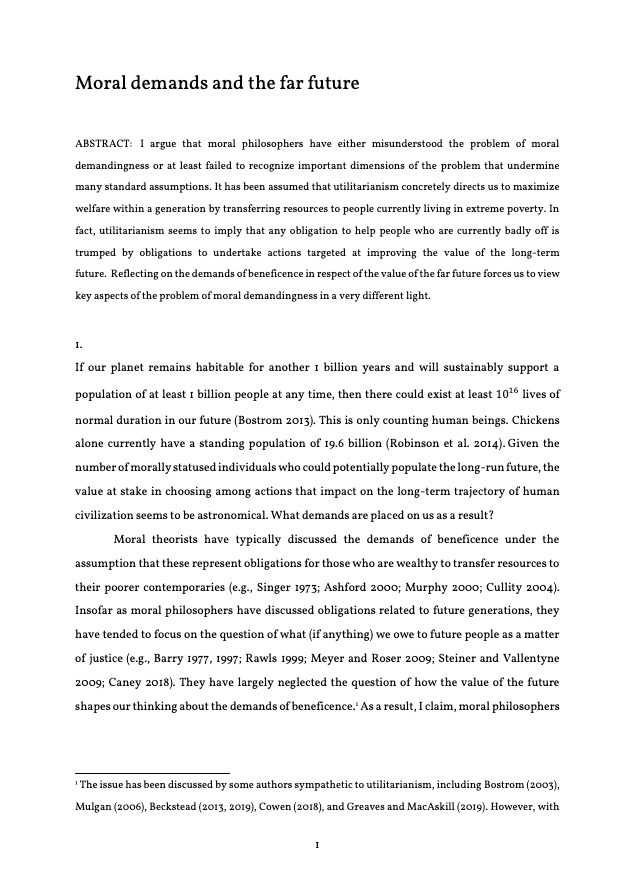Moral demands and the far future
Andreas Mogensen (Global Priorities Institute, Oxford University)
GPI Working Paper No. 1-2020, published in Philosophy and Phenomenological Research
I argue that moral philosophers have either misunderstood the problem of moral demandingness or at least failed to recognize important dimensions of the problem that undermine many standard assumptions. It has been assumed that utilitarianism concretely directs us to maximize welfare within a generation by transferring resources to people currently living in extreme poverty. In fact, utilitarianism seems to imply that any obligation to help people who are currently badly off is trumped by obligations to undertake actions targeted at improving the value of the long-term future. Reflecting on the demands of beneficence in respect of the value of the far future forces us to view key aspects of the problem of moral demandingness in a very different light.
Other working papers
Critical-set views, biographical identity, and the long term – Elliott Thornley (Global Priorities Institute, University of Oxford)
Critical-set views avoid the Repugnant Conclusion by subtracting some constant from the welfare score of each life in a population. These views are thus sensitive to facts about biographical identity: identity between lives. In this paper, I argue that questions of biographical identity give us reason to reject critical-set views and embrace the total view. I end with a practical implication. If we shift our credences towards the total view, we should also shift our efforts towards ensuring that humanity survives for the long term.
Doomsday and objective chance – Teruji Thomas (Global Priorities Institute, Oxford University)
Lewis’s Principal Principle says that one should usually align one’s credences with the known chances. In this paper I develop a version of the Principal Principle that deals well with some exceptional cases related to the distinction between metaphysical and epistemic modality. I explain how this principle gives a unified account of the Sleeping Beauty problem and chance-based principles of anthropic reasoning…
Aggregating Small Risks of Serious Harms – Tomi Francis (Global Priorities Institute, University of Oxford)
According to Partial Aggregation, a serious harm can be outweighed by a large number of somewhat less serious harms, but can outweigh any number of trivial harms. In this paper, I address the question of how we should extend Partial Aggregation to cases of risk, and especially to cases involving small risks of serious harms. I argue that, contrary to the most popular versions of the ex ante and ex post views, we should sometimes prevent a small risk that a large number of people will suffer serious harms rather than prevent…

